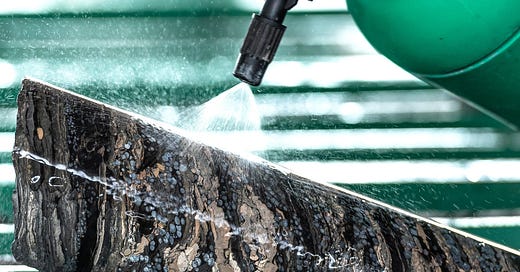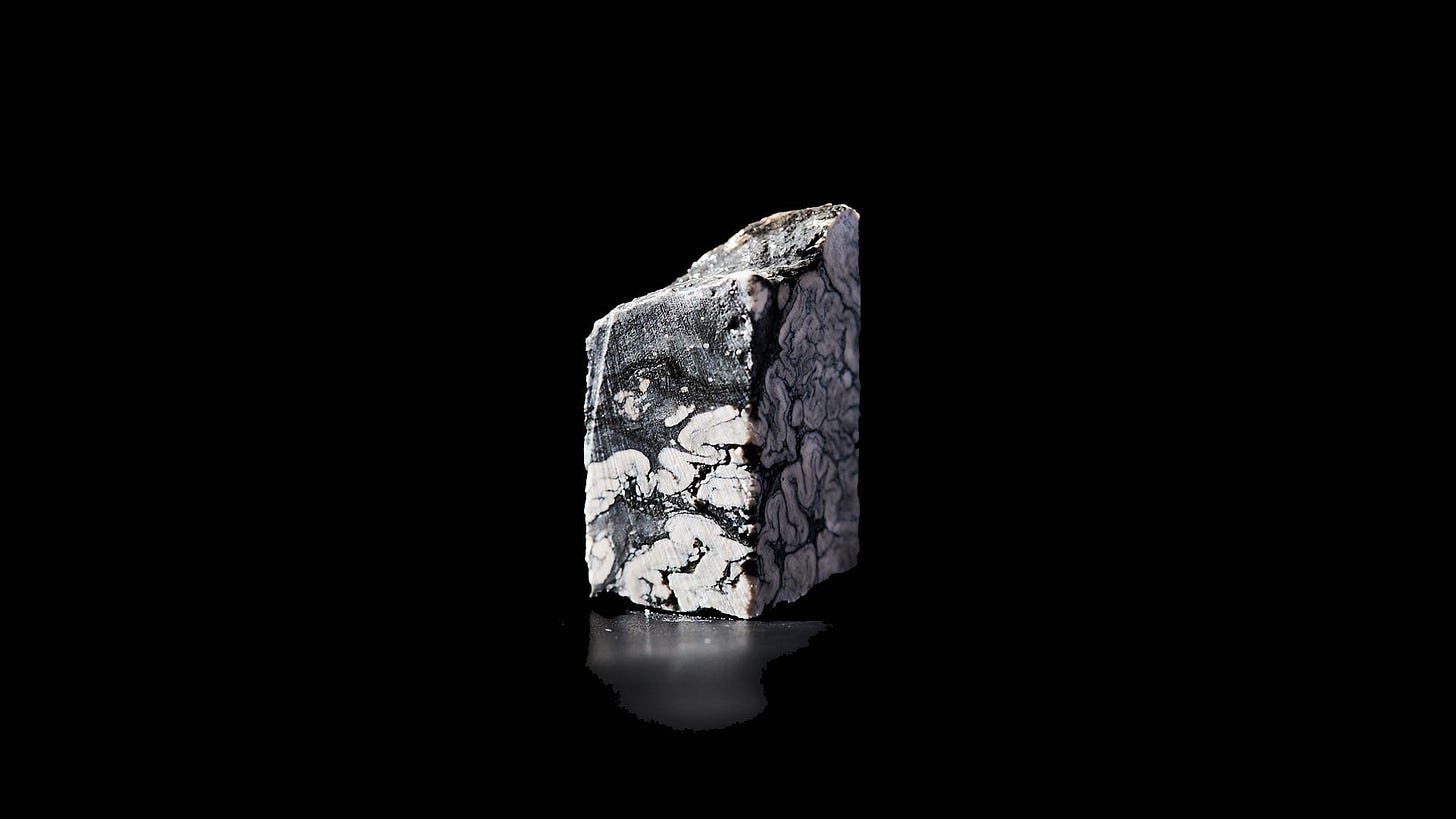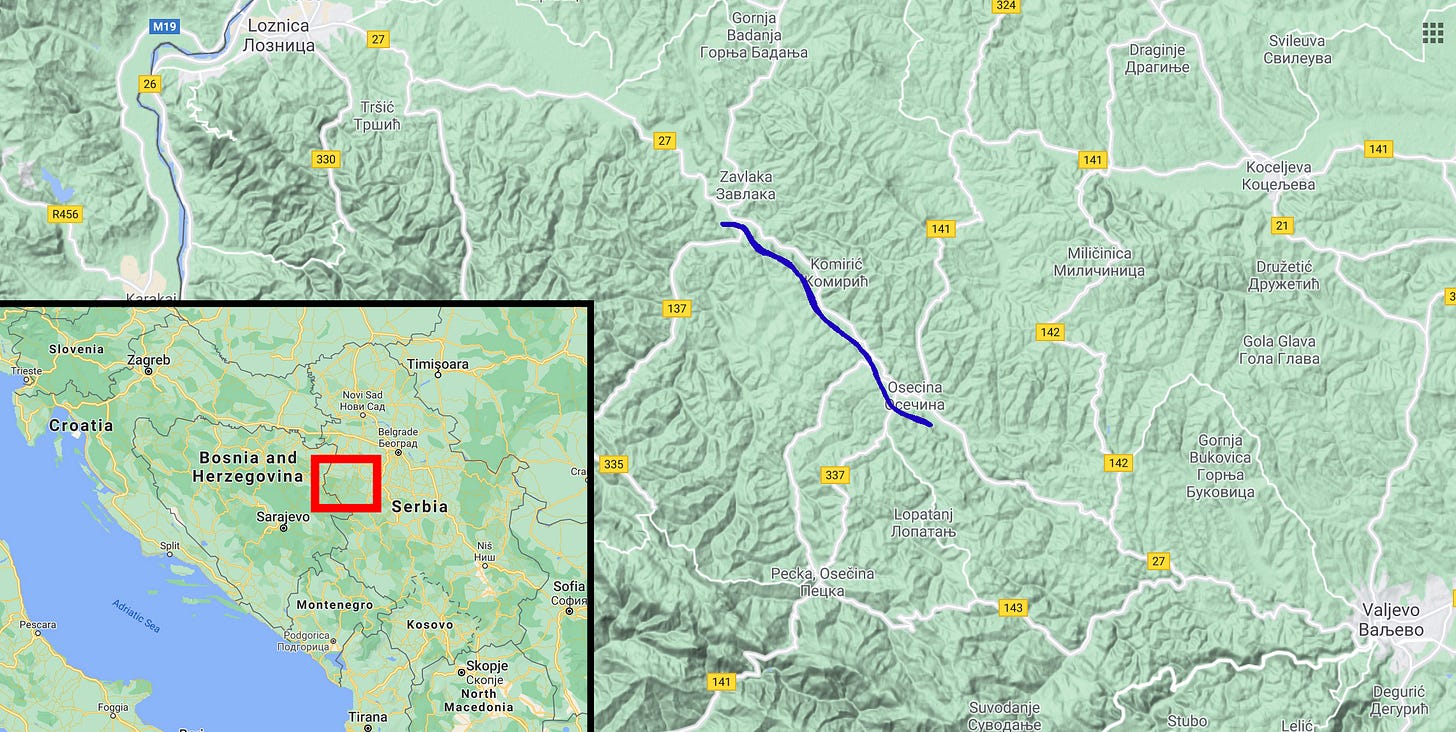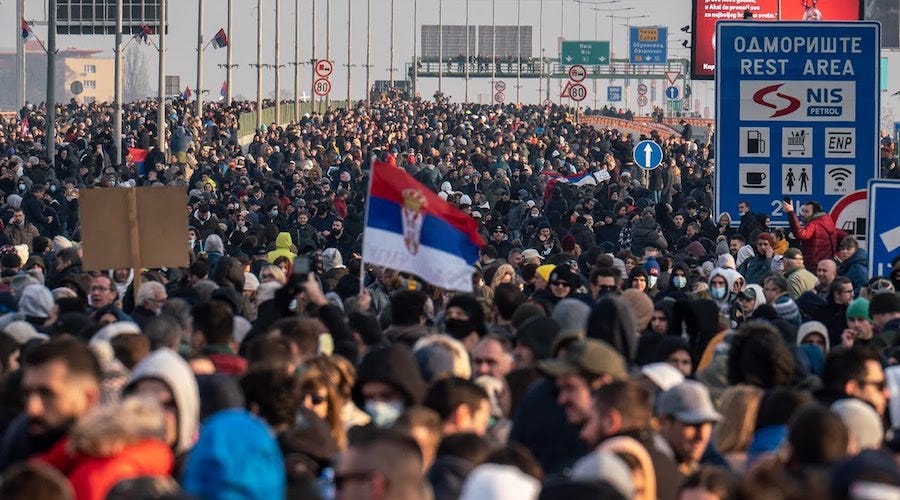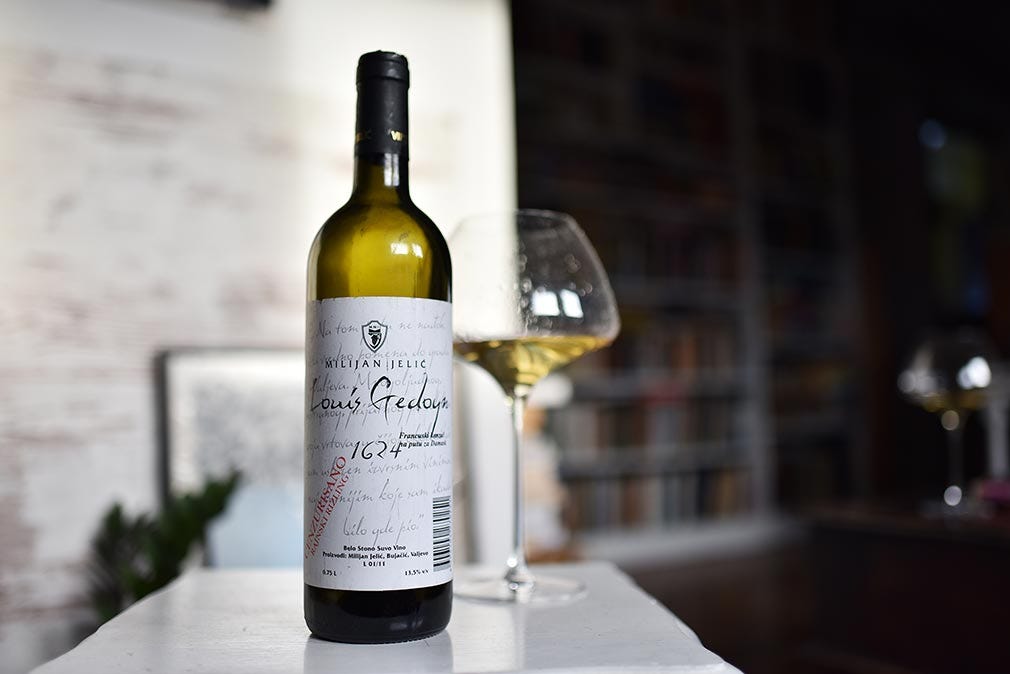S5E2. It's time to talk about lithium in Serbia again
The Rio Tinto project to exploit one of the world's largest lithium deposits has resumed with the backing of the European Union, sparking renewed mass protests in Belgrade over environmental concerns
Dear reader,
welcome back to BarBalkans, the newsletter with blurred boundaries.
There are stories that do not fade over time. They are like karst rivers. At times, these stories disappear underground before they resurface forcefully, just when everything seems calm.
This is the story of Europe’s largest lithium deposit. It started twenty years ago and, after a series of events that appeared to end the mining project, resurfaced in Serbia this summer.
Despite serious concerns among the Serbian population over the environmental risks in the Jadar River Valley, the authorities in Belgrade have decided to grant mining permits to Rio Tinto Group once again.
But this time, the European Union is also involved, with its industrial policy aimed at achieving zero emissions and promoting “strategic autonomy”. Now Serbia - a candidate country for EU accession - is becoming a more crucial player than ever.
Where we were
The story of lithium in Serbia - and the controversial affairs of Rio Tinto - has now been ongoing for exactly 20 years, as we analyzed in the first season of this newsletter.
In 2004, geologists working for the British-Australian mining corporation discovered a previously unknown mineral in Western Serbia, in the Mačva district, near the border with Bosnia and Herzegovina.
The new silicate mineral, sodium lithium boron silicate hydroxide, discovered in the Jadar River Valley (between the towns of Loznica and Valjevo) was named ‘jadarite’ and certified by the Natural History Museum in London. Interestingly, the chemical formula of jadarite is very similar to the imaginary Superman’s kryptonite.
Read also: XXXII. Tomorrow’s oil
The deposit near Loznica is currently unique on Earth. According to detailed studies, it consists of 136 million tonnes of jadarite, with high concentrations of lithium and boron. This is the largest lithium deposit in Europe and could cover 10% of the world’s demand. This means that approximately one in every ten kilograms of lithium worldwide could come from Serbia.
Lithium is a metal whose demand is constantly growing, and will continue to grow for a long time. This raw material is a crucial component for the production of new clean technologies, such as batteries for electric vehicles, but also of all everyday digital devices, such as smartphones.
Lithium will play a pivotal role in the transition to a low-carbon economy. The Jadar mine is a high-quality and long-lasting deposit, positioning Serbia as a new frontier in this field.
This is why, since 2004, Rio Tinto Group has significantly increased its efforts to accelerate the start of extraction, with a total allocation of 2.55 billion dollars to implement the project.
In 2017, the Serbian government led by Ana Brnabić signed a Memorandum of Understanding allowing the British-Australian multinational company to develop the mining project in the Jadar River Valley.
However, at the end of 2021, a wave of popular protests broke out due to huge environmental concerns, including pollution from mining and processing, industrial waste storage, the filling of the underground mine, and the daily consumption of 8,000 cubic meters of water. Equivalent to more than the total water capacity of the Oceanografic aquarium in Valencia, every day.
Read also: S2E19. In the heart of the hemicycle
The issue came to the attention of the European Parliament - largely due to authorities’ reactions in Belgrade - as reported in December 2021 by BarBalkans from Strasbourg.
The resolution of the European Parliament expressed “deep concern over serious problems with corruption and the Rule of Law” in the environmental area, in particular over the “general lack of transparency and over environmental and social impact assessments of infrastructure projects”, including those financed by multinational companies “such as Rio Tinto”.
The MEPs also focused their attention on the “increasing violence” against peaceful environmental demonstrations, in particular the “force used by the police against protesters”.
After weeks of mass protests, Rio Tinto’s operations were halted. In January 2022, Prime Minister Brnabić announced that «it is all over» for jadarite mining. Meanwhile, despite the suspension of the project, Rio Tinto continued to invest.
Rio Tinto, Vučić and the EU
If it had all ended in 2022, Rio Tinto would not have continued to invest, nor would we be here talking about the jadarite deposit in Serbia again. The story took an unexpected turn at the beginning of this summer.
On July 11, the Serbian Constitutional Court declared that the decision taken in 2022 to halt the mining plan in the Jadar River Valley was unconstitutional, ruling that the government “exceeded its jurisdictional limits” and that it must make a new decision regarding the spatial plan of the special purpose area.
A new wave of popular protests broke out in the streets of Belgrade between July and September, with tens of thousands of demonstrators opposing the trade-off between their health, the environment, and economic interests, as well as the indiscriminate exploitation of the land.
To bypass the media blackout, where television news gives the issue just a few seconds of coverage, demonstrators blocked roads, highways and railway stations, speaking directly with fellow citizens to explain the environmental consequences of mining.
Read also: S3E2. Marching for pride
The popular uprising poses a significant threat to the power of Serbian President Aleksandar Vučić, reflecting his deep interest in exploiting this mineral resource. This interest is driven both by a desire to increase Serbia's geopolitical influence and to prevent foreign actors from interfering in sensitive domestic political issues.
Proof of this is the EU-Serbia Memorandum of Understanding on the strategic partnership “on sustainable raw materials, battery value chains and electric vehicles”, signed on July 19 by President Vučić, German Chancellor Olaf Scholz, and Executive Vice-President of the European Commission for the Green Deal Maroš Šefčovič.
Besides the Memorandum of Understanding with the EU - which includes the joint elaboration «within six months» of a roadmap with «concrete actions» for its implementation - the Serbian government also signed several of agreements for lithium supply with major car manufacturers, such as Mercedes-Benz, Stellantis and Volkswagen.
The Serbian President hopes to achieve an annual production of 58 thousand tonnes of lithium, enough to manufacture electric batteries to power 1.1 million electric vehicles, around 17% of the total European market.
Taking advantage of economic interests and the EU strategy to avoid dependence on China for critical raw materials’ supply, Vučić is trying to to economically bind key partners, ensuring their support despite concerns about Serbia’s adherence to EU democratic standards.
In other words, securing a supply of lithium in exchange for turning a blind eye to democratic standards.
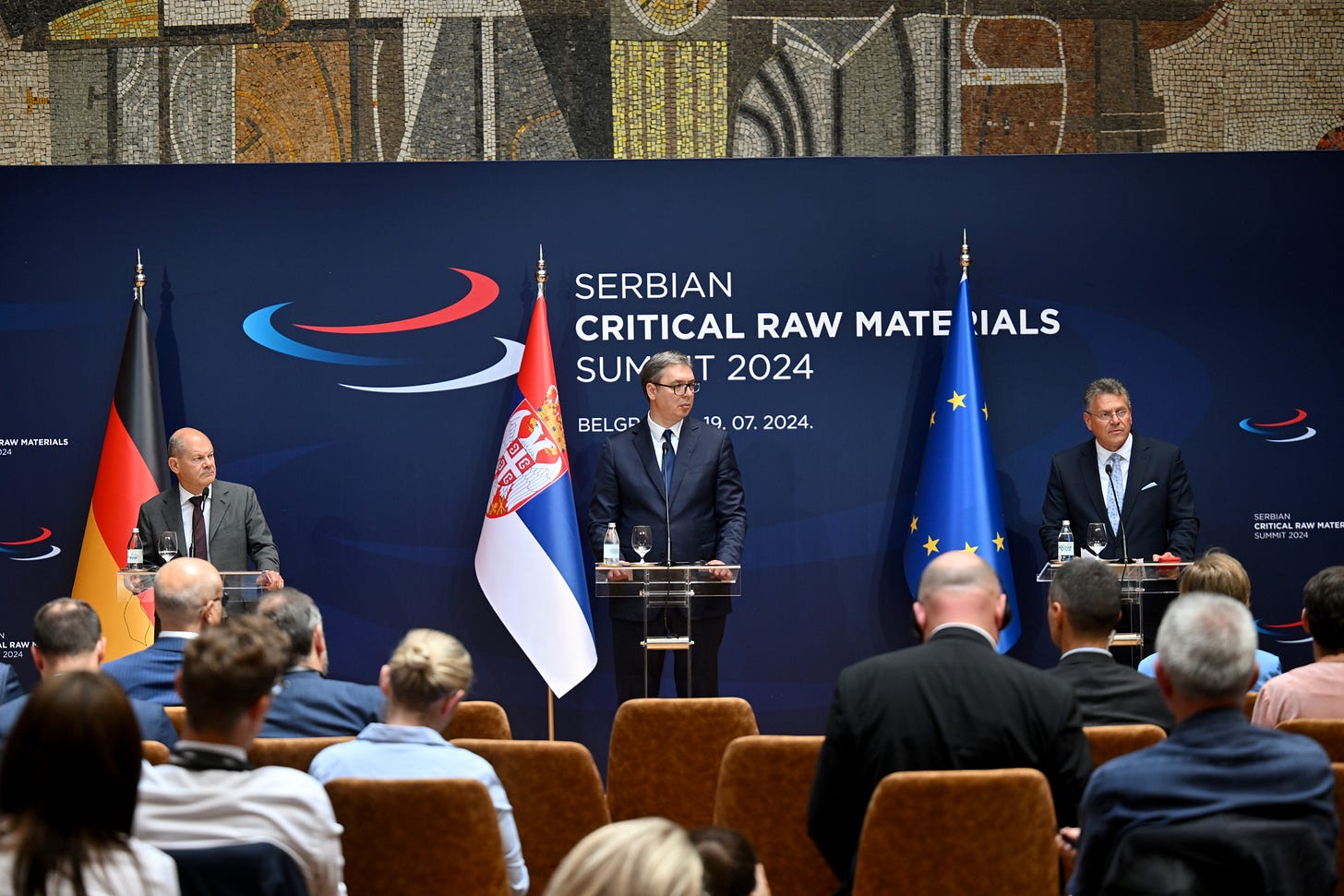
It is important to note that Vučić is not treating the EU differently from other international partners.
The Serbian President’s approach to foreign policy is to strike agreements with any party that brings investment into the country, provided they do not interfere in domestic affairs.
For example, the Serbian energy sector has significant Russian interests - particularly in oil and gas trade - and even more substantial Chinese interests, such as the copper mines in Bor acquired by the multinational mining company Zijin Mining.
The Balkan country has also been in accession negotiations with the European Union since 2014, with a series of strict criteria that must be met. At the same time, the EU, one of the fastest-growing markets for electric vehicles in the world, is in urgent need of critical raw materials.
Read also: S2E21. In their shoes
While this strategy highlights the vulnerability of the European Union (particularly the European Commission) to potential “blackmail” by its partners, it also exposes Vučić to mass popular protests that could undermine his control over national institutions.
President Vučić accused the protesters of being part of a «hybrid approach of conducting color revolutions», alluding to an imagined coup d’état allegedly supported by Western countries. However, it is unclear why these same Western partners who eagerly supported the Rio Tinto project would back an environmentalist uprising against Vučić and his system of power.
Moreover, Belgrade reportedly received this information from its historic Russian ally, which President Vučić maintains within his non-alignment strategy to avoid relying solely on European partners. And he uses the same Russian terminology to discredit pro-EU mass movements (like in Ukraine to Georgia as well).
This is another dramatic move by the strongman of Serbia to consolidate power by eroding democratic standards.
Now, a unique geopolitical factor threatens to end any hope for positive change regarding the Rule of Law in Serbia.
The pressure can no longer come from the European Union - which is entangled in an industrial policy that necessitates significant compromises - but only from the resistance of a population concerned about its environmental future.

Pit stop. Sittin’ at the BarBalkans
We have reached the end of this piece of the road.
Today at our bar, the BarBalkans, we rediscover the significant natural and environmental value of the region where Rio Tinto, President Vučić and the EU Member States aim to bring the mining project to life.
Here, we recall that Western Serbia is a centuries-old wine region, as supported by several historical accounts.
These include the words of the French consul in Syria, Louis Gedoyn. On one of his journeys between Paris and Aleppo, he travelled through the Western Balkans, and on 23 January 1624 he noted in his diary:
“On that trip [from Belgrade to Aleppo, ed.] I have not found anything worth mentioning but the Valjevo town. A town with a lot of population, vast, pleasant for a great number of gardens, where I was served with excellent wines, the most delicious that I have ever tasted”.
Milijan Jelić Winery has honored this historic testimony by dedicating one of its most renowned labels to Gedoyn.
This label is a white wine with character, made from the Rhine Riesling grape variety.
Let’s continue BarBalkans journey. We will meet again in two weeks, for the 3rd stop of this season.
A big hug and have a good journey!
If you have a proposal for a Balkan-themed article, interview or report, please send it to redazione@barbalcani.eu. External original contributions will be published in the Open Bar section.
The support of readers who every day gives strength to this project - reading and sharing our articles - is also essential to keep BarBalkans newsletter free for everyone.
Behind every original product comes an investment of time, energy and dedication. With your support BarBalkans will be able to elaborate new ideas, interviews and collaborations.
Every second Wednesday of the month you will receive a monthly article-podcast on the Yugoslav Wars, to find out what was happening in the Balkans - right in that month - 30 years ago.
You can listen to the preview of The Yugoslav Wars every month on Spreaker and Spotify.
If you no longer want to receive all BarBalkans newsletters (the biweekly one in English and Italian, Open Bar external contributions, the monthly podcast The Yugoslav Wars for subscribers), you can manage your preferences through Account settings.
There is no need to unsubscribe from all the newsletters, if you think you are receiving too many emails from BarBalkans. Just select the products you prefer!

